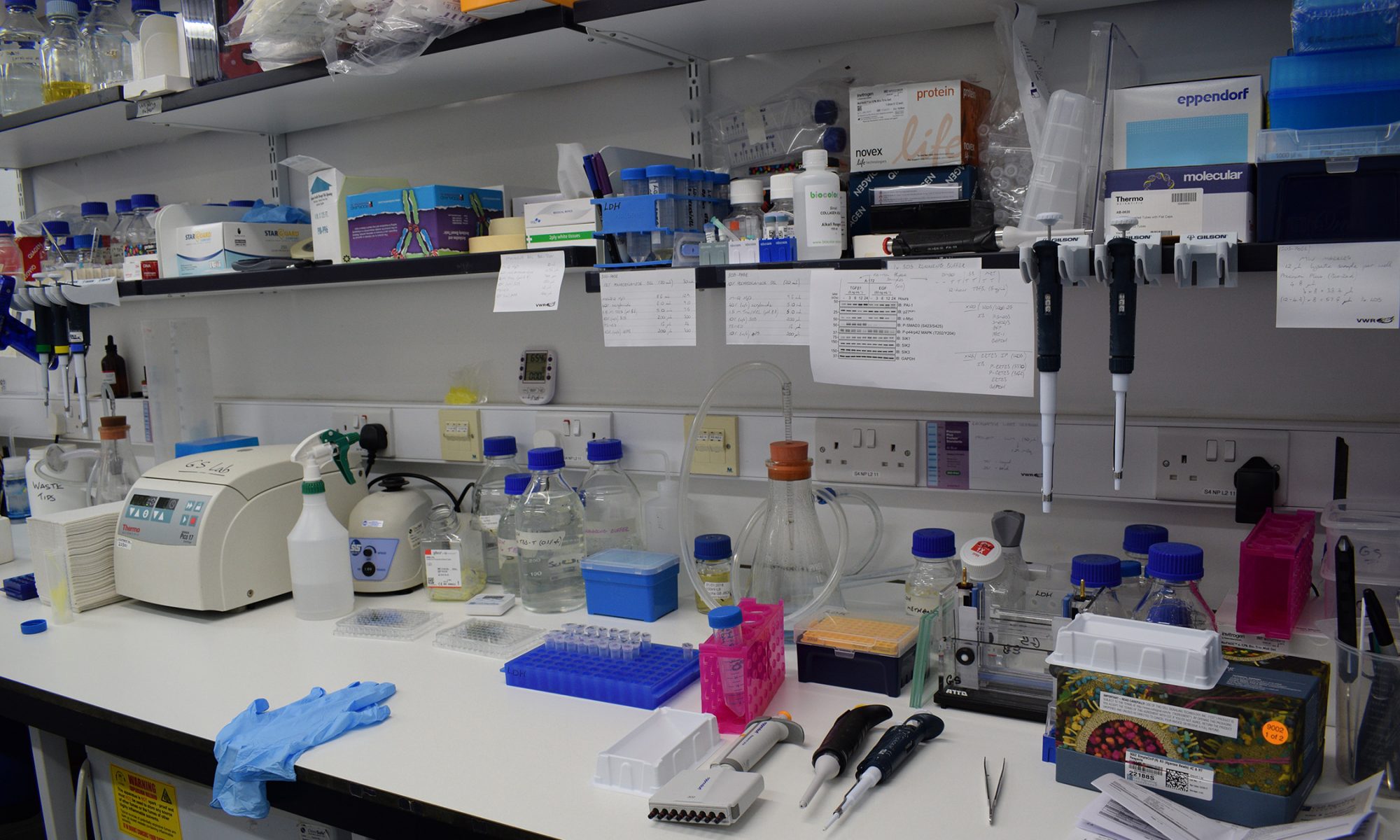Understanding mechanisms of reversible phosphorylation and ubiquitylation in cell signalling and disease.
Our lab is interested in understanding how reversible phosphorylation and ubiquitylation of proteins underpin the regulation of many cell signalling processes. Faulty signalling cascades account for many human diseases, including skin and bone disorders, cancer and neurodegenerative diseases. By understanding signalling mechanisms, we hope to uncover weak spots for therapeutic interventions.
We have a collaborative ethos to tackling challenging biological problems. Our lab has ongoing collaborations with leading pharmaceutical industries (GlaxoSmithKline, Boehringer Ingelheim, Merck Serono, Amgen and Janssen Pharmaceuticals) and leading academic laboratories and experts worldwide.
There are two key areas of research currently being undertaken in the lab:
A: FAM83 family as key regulators CK1 isoforms: The CK1 family of Ser/Thr protein kinases is known to regulate a myriad of cellular processes, including cell cycle progression, circadian rhythms, Wnt signalling, cell cycle and Sonic Hedgehog signalling. Contrary to the current dogma that CK1 isoforms are constitutively active kinases, their activity, subcellular localisation, and stability must be regulated, and molecular mechanisms must exist to modulate their substrate specificity, to exert such pleiotropic functions. How this is achieved is poorly understood. In a series of ground-breaking discoveries, we have delineated the FAM83 family of poorly studied proteins as master regulators of CK1 isoforms. The eight members (A-H) of the FAM83 proteins share a conserved domain of unknown function, termed DUF1669, but are otherwise different in sequence composition and length. Building on these discoveries, the research in our group will explore the hypothesis that the family of FAM83 proteins direct the interacting CK1 isoforms to specific substrates in cells.
Key research objectives are:
1. Understanding how FAM83F and FAM83G regulate CK1α function in Wnt signalling and whether targeting the degradation of FAM83F/G is beneficial against colorectal cancer driven by WNT activation.
2. What are the molecular targets of FA83D-CK1α complex in mitosis?
3. Establish the molecular basis of FAM83-CK1 interaction
4. Delineate the molecular mechanisms by which different FAM83 proteins target specific CK1 isoforms to specific subcellular compartments and substrates in response to different signalling cues.
B: Induced-proximity platforms for targeted protein post-translational modifications (PTMs) to develop novel therapeutic approaches. Our laboratory has developed the Affinity-directed PROtein Missile (AdPROM) system as a versatile tool to induce proximity between an intracellular target protein of interest (POI) to an enzyme that can modulate a desired PTM. With AdPROM, we have targeted POIs for phosphorylation, dephosphorylation, biotinylation (for proximal proteomics), or ubiquitylation (for targeted protein degradation). We have now developed small bivalent molecule-based induced-proximity platforms that allow us to inducibly bring together any two proteins in cells to close proximity to investigate the functional consequences of this induced proximity. By using these complementary systems, we wish to investigate the functions of specific targeted PTMs on proteins and explore targeted modulation of PTMs as novel druggable approaches. Currently, we are focussing on reversible phosphorylation and ubiquitylation processes.
Our Values:
We promote a positive research culture and an inclusive research environment in which each and every individual can flourish and reach their full potential. Fairness, integrity, sustainability, respect and appreciation are at the heart of everything we do. We encourage collegiality and collaboration. Our values very much align with those of the MRC PPU.
The School of Life Sciences holds the Athena SWAN Charter Silver Award and the University of Dundee holds the Race Equality Charter Bronze Award
Join Us:
We are constantly looking for enthusiastic and inquisitive minds to join us at graduate and post-graduate levels. In the process, we hope to provide you with a world-class training in biomedical research.
Connect with us
Engagement:
In July 2024, the Herne Katha team, who are renowned filmmakers from Nepal, visited the Sapkota lab to make a documentary on the lab’s research. The documentary, has been published recently and can be found on YouTube. [Please note there may be adverts on YouTube. The Sapkota lab or the MRC PPU had no editorial input on the content]
We are grateful to the following funders for funding our research:
GSK
Boehringer Ingelheim
Merck-Serono
Johnson & Johnson
The Cunnigham Trust
Eastbio BBSRC
Novo Nordisk Foundation and University of Copenhagen, Denmark.
Michael J Fox Foundation
Amgen Inc.

